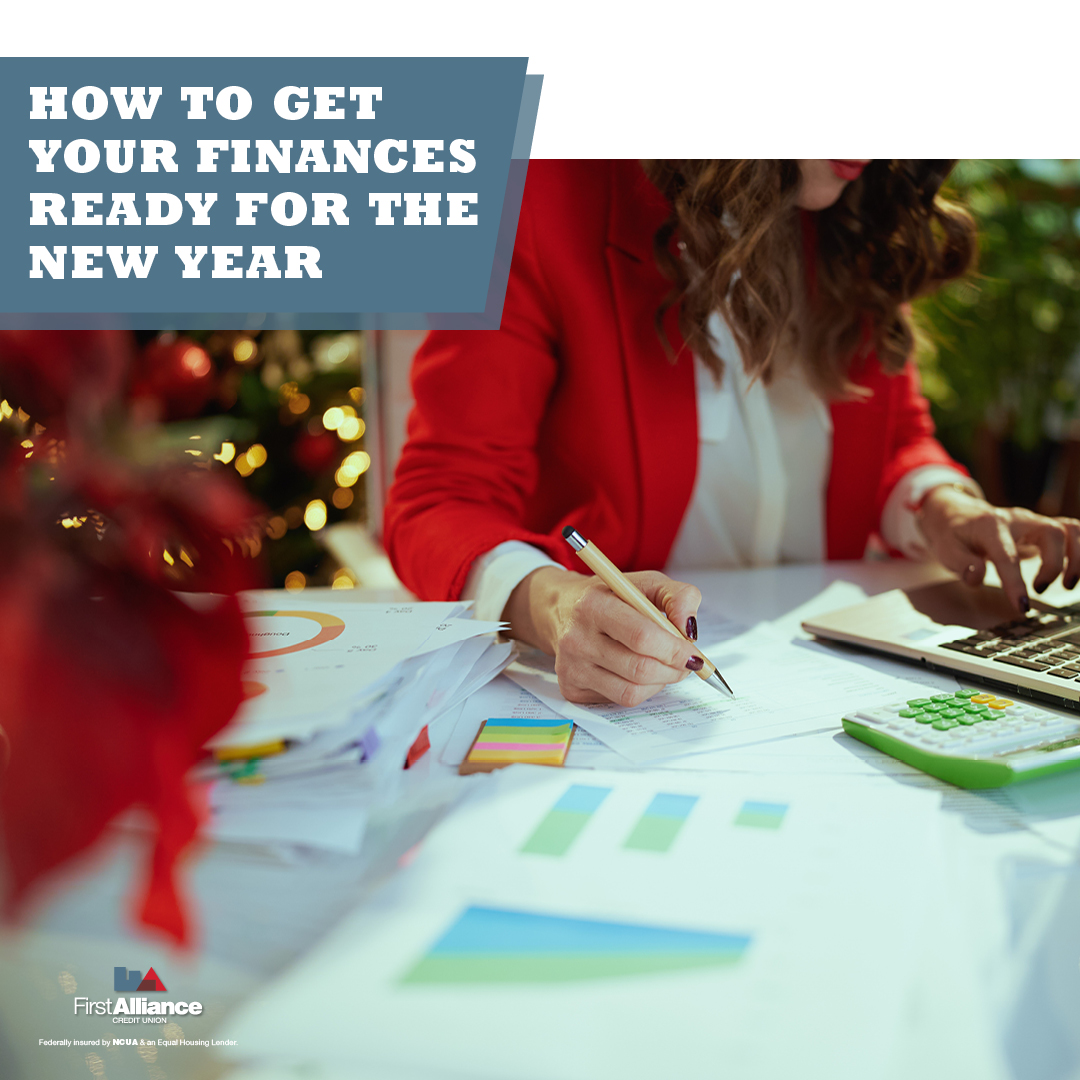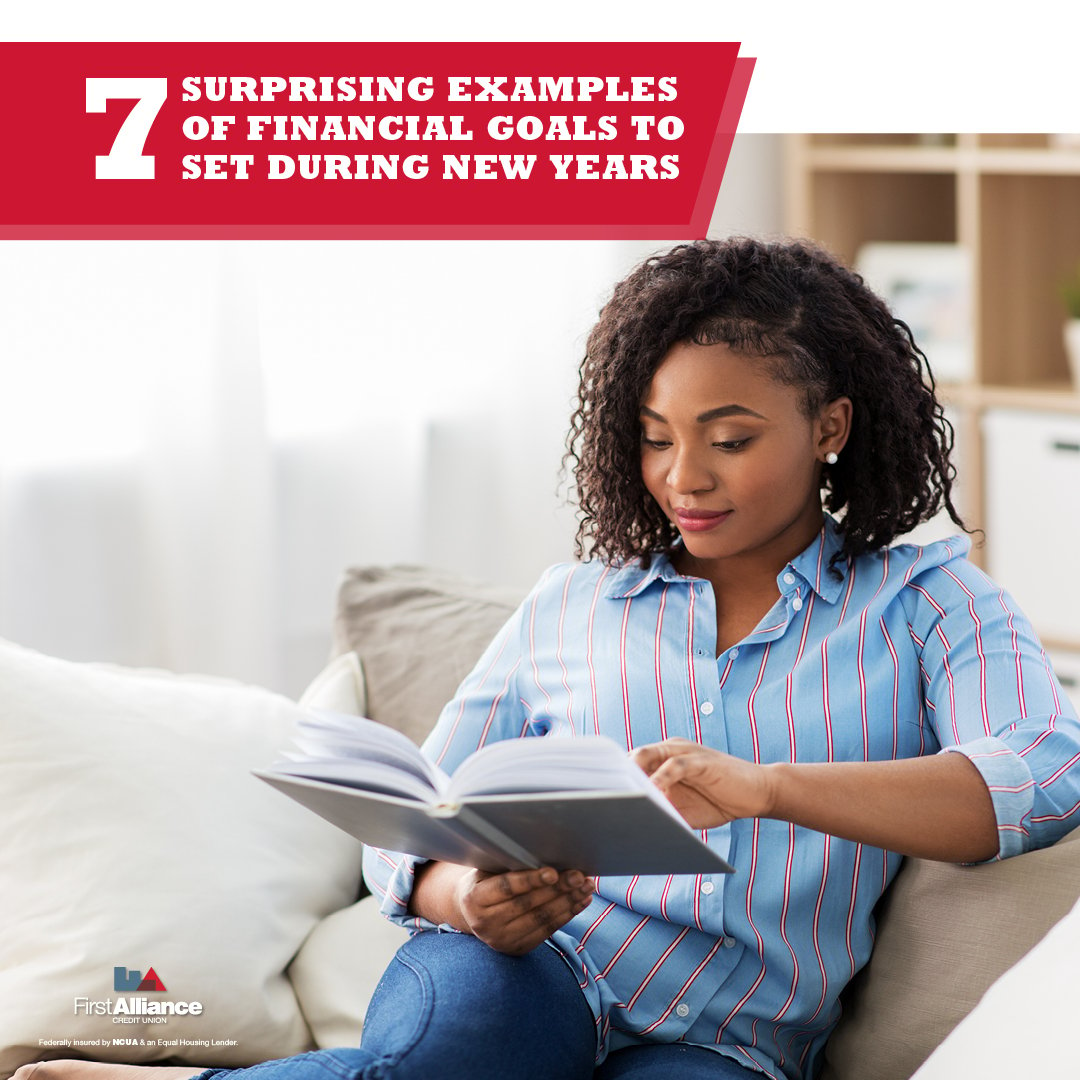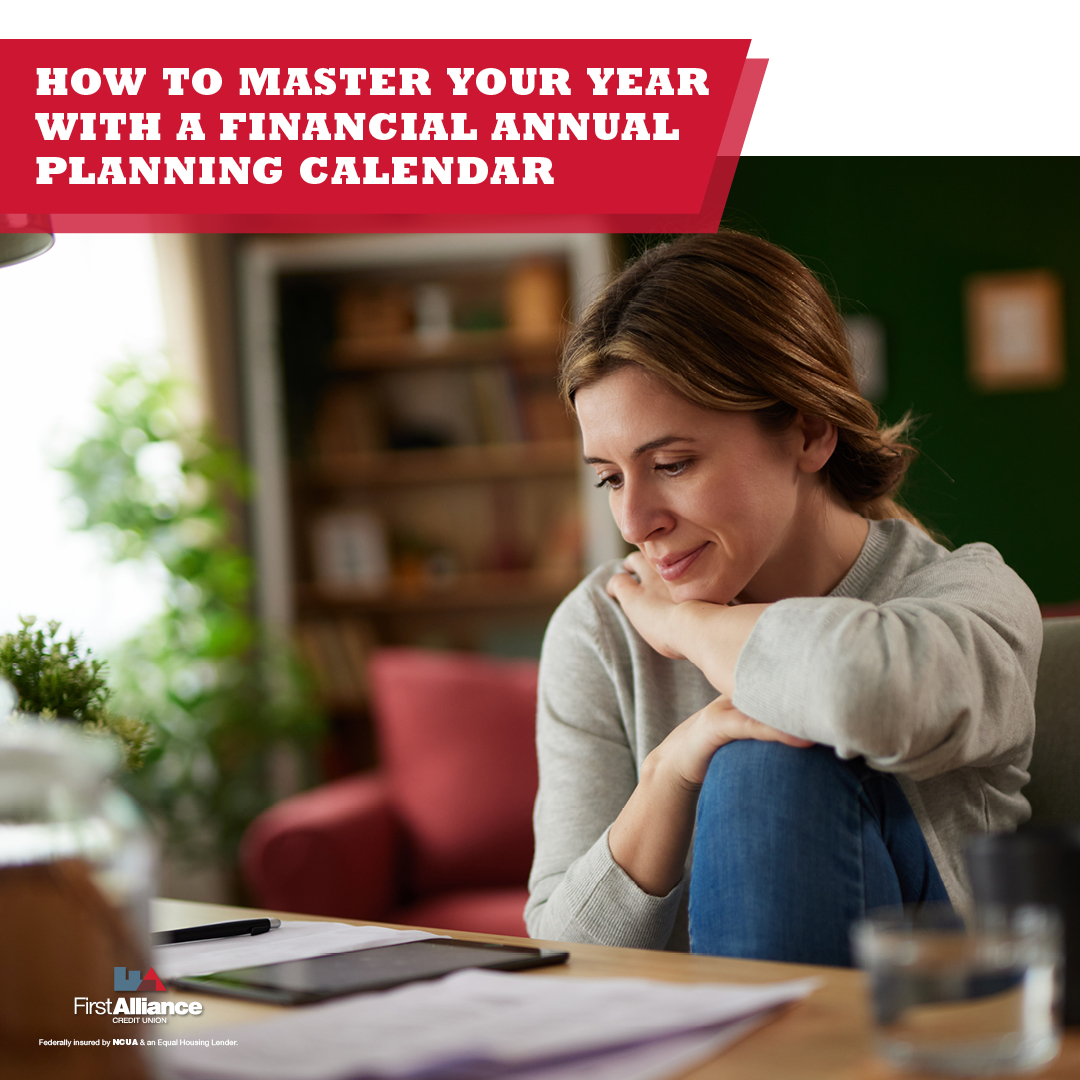Take Time to Set Goals for Your New Year's Resolutions
January 1st is a time to look ahead and make a New Year's resolution or two concerning all the things you want to do during the new year. That...
6 min read
 Chris Gottschalk
:
Dec 19, 2023 4:45:00 AM
Chris Gottschalk
:
Dec 19, 2023 4:45:00 AM

For most people, January is a time to prepare for the year ahead. The most popular way to do that is by making New Year's resolutions, but people also like to prepare by cleaning their homes, scheduling medical appointments and even taking advantage of post-holiday sales.
If you really want to own the new year, though, you'll also want to make sure your finances are prepared for the year ahead. This might sound like a complicated, tedious process, but it's really not.

This step should come as no surprise for long-time readers of our blog, but there’s a good reason for that. A budget is the single most powerful tool you have for not just controlling your finances, but cutting down on overspending and reaching your financial goals. However, you need to keep a budget current for it to be effective.
The first step to adjusting your budget is to look over the last month or two and see if there are any categories in which you’ve overspent. If you have overspent, you’ll need to figure out if it’s due to extenuating circumstances—like having to buy holiday gifts—or whether it's because you’re regularly spending more in the category.
If you are regularly spending more in a category, by the way, don’t beat yourself up. Instead, try to find the reason why you’re overspending. It could be that you’re overspending due to different life circumstances, or it could just be that prices have risen due to inflation.
Regardless of the reason, you’ll want to increase the amount you allocate to the category in which you’ve overspent. You’ll also have to figure out where that extra money is coming from. You might have to reduce your spending in other categories to compensate for the increased spending, or you might have some extra money in your budget you can use instead.
Of course, adjusting a budget doesn’t always mean having to cut costs and reduce spending. If you’ve gotten a raise or a new job that pays more this year, take some time to figure out where you’d like this money to go. You can put it toward the budget categories in which you overspent, but you can also create other budget categories, including those dedicated toward financial goals.
In order to reflect on the past year and prepare for the new year, take some time to review your accomplishments, challenges, and lessons learned. Consider what worked well for you and what didn't, and use that insight to set new goals and make positive changes for the year ahead.
Once you’ve reviewed and adjusted your budget, you’ll know that your day-to-day finances are under control. Now it’s time to look at the bigger picture by checking your credit score. You can do this through sites like Credit Karma, or if you’re a First Alliance Credit Union member, you can just log into your online bank account or our mobile app.
You’ll want to make sure you have a credit score of at least 700, which will place you firmly in the “good” category. This will show lenders that you’re a good credit risk, which means you’ll be more likely to be approved for a loan, whether it’s a small personal loan or a mortgage. A good credit score might even be the key to getting you a job or getting an apartment.
If you don’t have a good credit score, make a New Year’s Resolution to improve it. The most important step you can take to improve your credit score is to make sure all your payments are on time every month. If you’re having trouble paying off your bills, contact your creditors and ask for help.
You’ll also want to pay off any outstanding debts as fast as possible. Speaking of which…

Nothing can drag down your personal finances like debt, and most people struggle with debt around the holidays. According to one poll, over half of Americans went into debt due to holiday shopping in 2022. If you’re struggling with debt, make this year the year you get out from under it.
Unfortunately, getting out of debt usually takes some time and can be a grind in the best of circumstances. However, you can use some strategies to make getting out of debt easier.
Most strategies to pay off debts have two steps in common:
Which debt you start paying first depends on the strategy you use.
When you use the snowball method, you focus on the smallest debt you have. Once you’ve wiped out that debt, you can start paying off the next smallest debt using the money you were using to pay off the previous debt, and keep following the process until you’ve paid off all your debts. This process starts off slowly, but after you’ve taken care of the first debt it gets faster and faster, like a snowball rolling down a hill.
When you use the reverse snowball method, you start putting your extra money toward the largest debt instead of the smallest. When you use this method, it takes longer to see progress, but once you’ve made it past the challenge of paying off your largest debt, paying off the smaller debts will be much easier.
The final type of debt payment strategy is called the avalanche method. With this strategy, you focus on the debt with the highest interest rate and use all your extra money to pay it off first.
This strategy won’t give you the immediate satisfaction that the snowball method might, but it could save you money in the long run by wiping out the debt that will cost you the most in interest first.
If you have multiple debts, your best bet might just be to consolidate them with a debt consolidation loan that equals how much you owe. Once you pay off all your debts, all you have to do is pay off your loan.
A debt consolidation loan has two significant advantages over paying off your debts separately. First, you reduce the number of payments you make each month to one, so you’re much less likely to miss a payment. Second, you’ll probably save money, since the interest rate on debt consolidation loans is almost always lower than the price of other debts, especially credit cards.
One of the most common ways people get into debt is having to borrow money to cover an unexpected expense, whether it’s a car repair or a trip to the emergency room. If you want to prevent an emergency from derailing your finances, you need to create a robust emergency fund.
If you don’t have an emergency fund already, there’s never been a better time to start creating one. If you happen to have a few thousand dollars you don’t have any immediate plans for, you can create an emergency fund instantly, but most of us will have to save up gradually.
The key to building an emergency fund is to regularly save part of each paycheck. It doesn’t have to be a lot, either. Financial experts recommend starting by saving 10% of your paycheck, but if money is tight just save whatever you can comfortably afford.
Initially, you’ll use a traditional savings account to store your emergency fund. Once you have a couple thousand dollars saved, you should start looking at other options. You might consider putting your money in a money market account to take advantage of higher interest rates, or you could even put part of your emergency fund in a certificate of deposit (CD).
Finally, look at your financial goals and see if you’re still on track to achieving them. If you are, take a second to congratulate yourself. If you’re not, though, you’ll want to figure out how to get back on track. Maybe you’ll want to change the date you set for yourself to reach your goal, or maybe you can get back on track by increasing how much money you want to put toward your goal.
You’ll also want to think about any new financial goals you want to reach this year. Take some time to visualize what you’d like to accomplish this year, and once you’ve got some goals in mind, make them SMART:
Answering these questions won't just help you clarify the goal. It's also a great way to build a roadmap to your set goals, from giving yourself a timeline to reach your goal to setting milestones to help you gauge the progress you've made toward reaching them.
It’s worth pointing out that if you’ve got a partner, you should take some time to talk with them about their individual financial goals and which goals you’d like to accomplish as a couple. You can talk about what goals are important to both of you, what you’d both like to accomplish individually and even discuss your long-term goals. From there, you can choose which goals you’d like to make SMART and even use the goal tracker in the First Alliance Credit Union SMART Goal downloadable to keep track of your mutual progress.
While you're celebrating the holidays this December, take some time to get ready for the new year. You can start by reviewing your budget to make sure it’s current and checking your credit score to make sure it’s good. From there, you can make a plan to pay off your debts and build up your emergency fund to protect yourself against unexpected expenses. Finally, check in on your financial goals and take some time to do some goal setting for the next 12 months.
If you want to ensure you own the new year, become a member of First Alliance Credit Union today. We offer several resources to make financial planning easy, including the My Money Tool you can access through our online banking platform and mobile app. This will help you track your spending to make budgeting even easier, and it can even help you set up your financial goals.

January 1st is a time to look ahead and make a New Year's resolution or two concerning all the things you want to do during the new year. That...

If your New Year's resolutions involve money, you're not alone. According to one report, nearly half of Americans are making finance-related...

It's the beginning of a new year, and you are ready for it. Your monthly spending plan is up to date, you're regularly putting aside a percentage of...